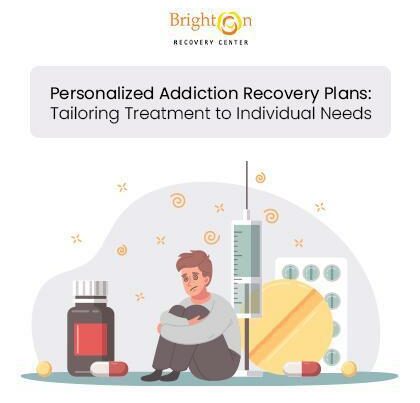Life Beyond Addiction: Navigating the Transition After Residential Treatment
Introduction:
Completing a residential addiction treatment program is a significant accomplishment, marking the first step toward a life beyond addiction. However, the transition from a structured environment to everyday life can be challenging. In this blog post, we will explore the essential strategies and considerations for individuals navigating the journey of reintegration and building a meaningful life after residential treatment.
 Developing an All-inclusive Aftercare Plan:
Developing an All-inclusive Aftercare Plan:
The foundation for a successful transition lies in a well-thought-out aftercare plan. You or your loved one can collaborate with treatment professionals to design a personalized strategy that includes continued therapy, support groups, and regular check-ins. Having a plan in place ensures ongoing support during the critical early stages of reintegration.
Establishing a Support System:
Building a robust support system is crucial for individuals transitioning from residential treatment center utah. This may include friends, family, sponsors, or members of a sober community. Regular communication with a support network provides encouragement, accountability, and a sense of connection during the challenging post-treatment period.
Transitioning to Outpatient Care:
Moving from residential treatment to outpatient care can be a gradual and effective way to maintain support while re-entering daily life. Outpatient programs offer continued therapy, counseling, and group sessions, allowing individuals to address challenges in real-world scenarios while still benefiting from professional guidance.
Navigating Triggers and Cravings:
Identifying and managing triggers is a crucial aspect of life beyond addiction. Residential treatment center utah equips individuals with coping mechanisms but applying them in everyday situations is key. Recognizing potential triggers and developing strategies to cope with cravings are essential skills for a successful transition. Building Healthy Routines:
Building Healthy Routines:
Establishing healthy routines is a fundamental part of life after addiction. This includes regular sleep patterns, nutritious meals, and consistent exercise. Structured daily routines provide stability and help individuals avoid the chaos that might contribute to relapse. Consistency fosters a sense of normalcy and aids in the adjustment process.
Exploring Hobbies and Passions:
Reconnecting with hobbies and passions plays a significant role in rediscovering joy and purpose. Whether it’s art, sports, music, or any other activity that brings fulfillment, engaging in these pursuits helps individuals build a positive, substance-free identity beyond their addiction.
Setting Realistic Goals:
Setting and achieving realistic goals provides a sense of accomplishment and direction. You or your loved one can start with small, attainable objectives, gradually expanding to more significant milestones. Goal-setting instills a sense of purpose and progression, contributing to a positive mindset during the post-residential treatment phase.
Rebuilding Relationships:
Addiction often strains relationships and rebuilding them is a critical part of the recovery process. Open communication, trust-building, and demonstrating consistent positive changes in behavior contribute to healing relationships with family, friends, and loved ones.
Addressing Co-Occurring Disorders:
Many individuals facing addiction also struggle with co-occurring mental health disorders. Transitioning back to everyday life involves ongoing attention to these issues. Continue therapy or counseling for mental health concerns helps ensure that both addiction and any co-occurring disorders are addressed concurrently.
Practicing Mindfulness and Self-Care:
Mindfulness practices, such as meditation and yoga, foster self-awareness and emotional regulation. Incorporating these practices into daily life helps individuals stay grounded, manage stress, and navigate challenges without resorting to substances.
Conclusion:
Life beyond addiction is a continuous journey of growth, self-discovery, and resilience. Navigating the transition after residential treatment requires a combination of ongoing support, healthy routines, and a commitment to personal development. By developing a complete aftercare plan, establishing a strong support system, and addressing triggers and cravings, you or your loved one can confidently embrace the challenges and opportunities that come with building a meaningful and substance-free life after addiction. The journey may be demanding, but with the right tools and mindset, it is undoubtedly a path toward a brighter and more fulfilling future.



